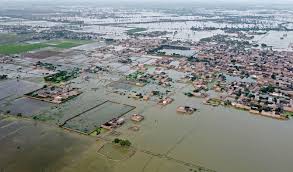
A recent report from the United Nations (UN) has shed light on Asia’s significant vulnerability to weather disasters and the escalating impacts of climate change in the region. Here are the key findings and insights from the UN’s assessment of Asia’s climate challenges in 2023.
According to the UN’s weather and climate agency, Asia experienced the highest number of weather and climate-related disasters globally in 2023, with floods and storms emerging as the primary causes of casualties and economic losses. This alarming trend underscores the urgent need for robust climate action and adaptation strategies across the continent.
Global temperatures soared to record highs last year, with Asia particularly affected by rapid warming. The World Meteorological Organization (WMO) highlighted that Asia’s temperatures were nearly two degrees Celsius above the long-term average, signaling a concerning trend in the region’s climate dynamics.
Celeste Saulo, the chief of WMO, expressed deep concern over the escalating impacts of climate change on Asian societies, economies, and ecosystems. The report emphasized that climate change exacerbated the frequency and severity of extreme weather events, including heatwaves, droughts, floods, and storms, significantly impacting human lives and the environment.
One of the critical concerns highlighted in the report is the melting glaciers in the High-Mountain Asia region, posing threats to water security and ecosystem stability. The accelerating rate of glacier retreat and sea level rise in the region signifies the profound repercussions of climate change on Asia’s future sustainability.
In 2023, Asia witnessed numerous climate-related incidents, such as heatwaves affecting regions from western Siberia to central Asia, Japan experiencing its hottest summer on record, and drought conditions in southwest China. The report also noted the highest sea-surface temperatures in the northwest Pacific Ocean, signaling warming trends in maritime regions.
The devastating impact of weather hazards was evident, with floods accounting for a significant number of disasters and casualties in Asia. The urgent need for improved disaster risk reduction strategies and tailored weather information for officials was underscored by the WMO, emphasizing the critical role of national weather services in mitigating climate risks.
As the climate crisis intensifies, the UN report calls for immediate action to reduce greenhouse gas emissions and enhance climate resilience measures. The urgency for proactive measures to address the evolving climate challenges in Asia has become a fundamental necessity, emphasizing the imperative for concerted global efforts to combat climate change.
Sources By Agencies


